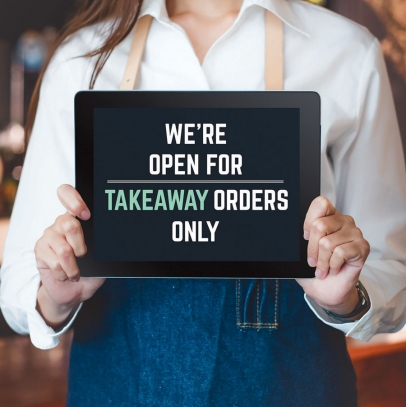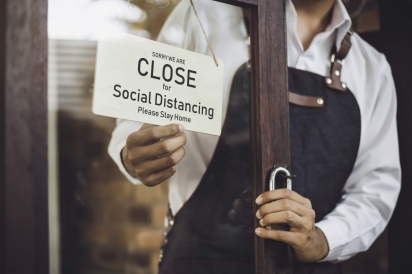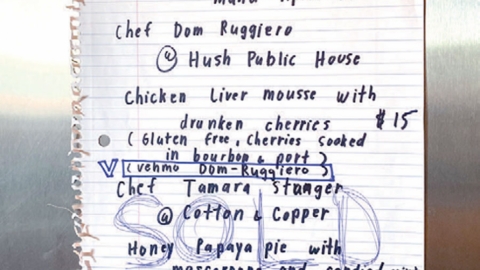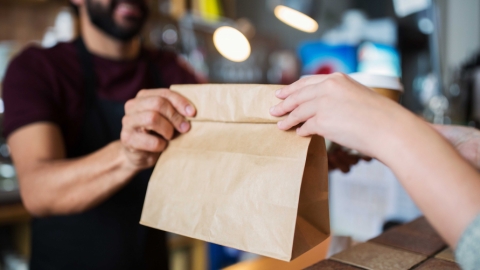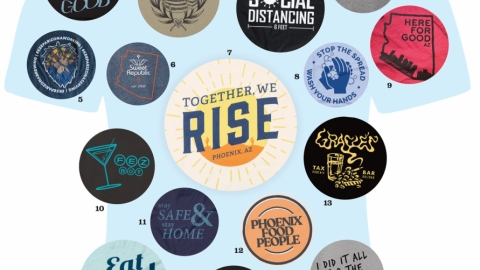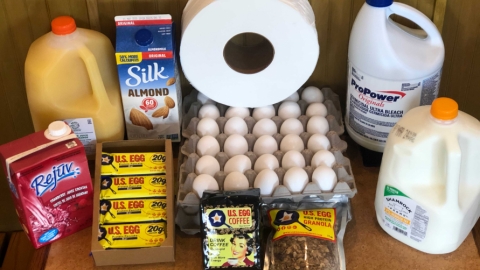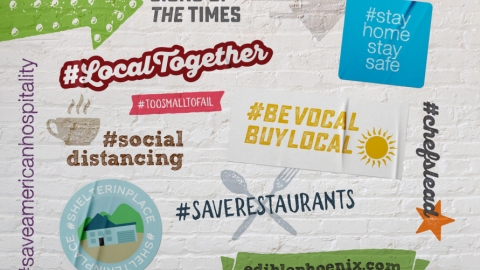Stay Open or Close
Restaurateurs, Chefs and Business Owners Make the Impossible Decision
It’s April here in Phoenix as I sit down to write this article. Spring has sprung. The weather is spectacular. The birds are singing. Leaves are sprouting everywhere.
We should be rejoicing. But we are not.
Most of us are home, isolating from friends and family to stay healthy. Others are working, either as health professionals or in fields deemed essential, putting themselves at risk each day to provide us with necessities like food and medicines.
There is fear and uncertainty about the future. Government help notwithstanding, how many of us will be able to make our livelihoods in our chosen line of work when this is over? What businesses will survive these many weeks and perhaps months of closure?
One industry hard hit by all of this is the hospitality industry, including hotels and restaurants. We aren’t traveling and we aren’t eating out. Traveling may not be essential but eating sure is, and for many of our citizens eating in restaurants may be more of a necessity than a luxury.
When the government mandated that restaurants close on-site dining, restaurateurs had to make extremely difficult decisions with limited information. Should they remain “open” for business by providing takeout and delivery options, or should they temporarily close down completely?
For Silvana Salcido Esparza, co-owner of Barrio Café and the now permanently closed Barrio Café Gran Reserva, there was no question but to close her restaurants. “I wanted to safeguard my employees and flatten the curve. We budgeted to pay our 16 regular employees for six weeks. To the others, we gave severance and hope that they apply for unemployment. My aim was to keep my workers safe so we will all be healthy when we reopen.”
There were others who agree with Chef Silvana that staying open was too much of a danger. Chef Chrysa Kaufman, owner of Rancho Pinto Grill and one of the first to close, told me, “I sent my people home on Saturday night and nobody is working since. I gave everyone leftovers and I am paying them from my own pocket, all their wages until we reopen. I don’t have any partners. I have everything to lose ... except my conscience.”
Some restaurateurs remain open for takeout and delivery, which is allowed regardless of how stringent the regulations for gathering in public are, thereby insuring their staff can continue to earn at least a reduced wage and the owners can hopefully earn enough to pay the rent.
George’s Kitchen is a small neighborhood restaurant in central Phoenix frequented by those of us who live nearby. The restaurant is run by George Delgiannis, who told me that as long as the governor says it’s OK to provide takeout and delivery, he will continue to do so. “It’s not easy without diners coming to the restaurant to eat, but we’re doing our best to provide the neighborhood with the food they want and need”.
Another neighborhood restaurant that has decided to stay open is Hana Japanese Eatery. “Despite all the controversy surrounding restaurants closing or staying open, we are a family, so we decided to stay open to service those individuals in need. Whether delivery, takeout, toilet paper or just a friendly voice over the phone, to put our guests at comfort and ease is why we’re here,” says Lori Hashimoto, co-owner.
Speaking of need, Country and Sergio Velador of Super Chunk Sweets and Treats and New Wave tried to balance safety and necessity by reopening after a short hiatus. “We closed two weeks ago to keep ourselves safe, and also to keep our employees and guests safe. We reopened today but have limited hours. We wanted to make sure, before reopening, we were educated on the concerns we had about proper safety,” Country says. “Sergio and I are the only ones working right now at the restaurant. We’ve told our employees to stay home. We are doing takeout (via online ordering) and delivery (Postmates) only. The restaurant itself is closed to the public. When someone comes to pick up their online order, we have them call us and we place it on a table outside. The biggest deciding factor for why we reopened was hearing my niece say that she was really happy to have to-go options in her area because every time she goes to the grocery store, they are out of the food and necessities she needs. She is pregnant, has a 4-year-old and she has asthma. We are hearing similar stories from our neighbors. So we are quickly adding items like eggs, butter and sugar to our online ordering system for pickup or delivery.”
Foodservice workers can be among the lowest-paid workers with the least job security. Oftentimes these workers rely on tips to supplement their wages. If restaurants are closed to the public, then tips dry up even if the employees are being paid their base wages.
Lauren Bailey, CEO and co-founder of Upward Projects (Postino Wine Café, Federal Pizza and Churn) says she’s seen “more human kindness, collaboration, innovation and grit than ever before. Since more than 90% of our employees are furloughed right now, we went to work immediately to figure out what we could do to support them. We began with our legislators, to give a clear picture of what we need to survive immediately, and we created a GoFundMe page for our teams that can’t work right now, and we raised upwards of $60K for them. We also began serving family meals to our teams the first day they were out of work. We are also donating a meal to No Kid Hungry for each board of bruschetta we sell.”
Due to temporary changes in regulations, restaurants with liquor licenses can now deliver cocktails and spirits along with meals. Phoenix City Grille, a long-time central Phoenix restaurant and local watering hole, is doing just that. By offering takeout of both food and alcohol, they can keep their bartender and much of the kitchen staff working. “We’re paying everyone more than their usual salary to make up for the loss of tips,” says co-owner Micah Wyzlic. They are also offering some produce along with eggs for customers who pre-order.
For small family-run businesses that do not have employees to worry about, staying open is less of a conundrum. Arcadia Premium is such a shop. It’s a go-to for many residents of Arcadia and nearby neighborhoods. Co-owner Lara Mulchay believes their shop is indeed an essential business to the neighborhood. “We are already well-versed on what our regular customers like/want/need and can easily get them in and out of the shop or deliver to them curbside for safety,” she says. “We are determined to keep our local vendors in business and thriving. Many of them cannot sell to large chains so their only option right now is direct sales or delivery or to have us carry their products for sale. We will stay open as long as we can operate safely. Our first priority is the safety and health of our clientele.”
We’re all new at this pandemic stuff so we’re learning together. Time will tell which decisions were the right ones. Restaurateurs and other food purveyors are doing what they can to provide food for the public and provide work or salaries for their employees while maintaining a safe environment for everyone. What’s important is for us to support those who are open now, and to return to our local businesses when our freedom to roam returns.


